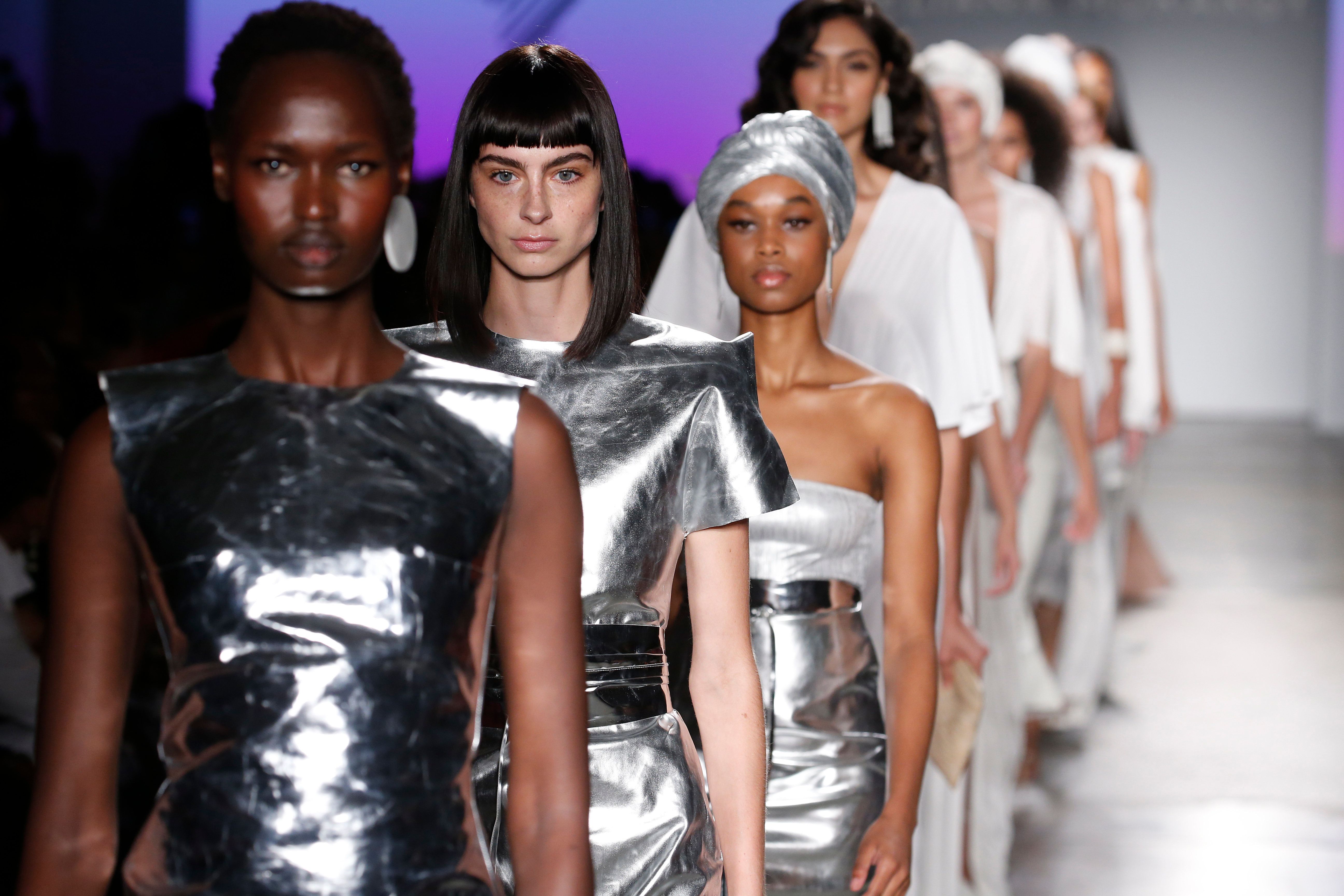Eliana Murargy Is the Trailblazing Mozambican Fashion Brand You Should Know About
We spoke with the designer about her latest collection "Basking In the Osun River," which was the first by a Mozambican designer to show at New York Fashion Week.
Mozambican fashion designer Eliana Murargy has been on a mission to re-imagine luxury clothing in Africa since she first established her eponymous brand in 2011. Her latest collection "Basking in the Osun River," does just that. It debuted at New York Fashion Week (NYFW) last month, making her the first designer from Mozambique to showcase at the renowned fashion event.
Murargy put the myriad African influences in her designs front and center with "Basking in the Osun River"—a name which directly reference the mystical Osun River, which runs from Nigeria to the Atlantic Gulf of Guinea.
The designs themselves, are characterized by ethereal and skillfully tailored garments, designed in solid, earth-tones with feminine silhouettes, inspired by The Aje—a female Yoruba figure believed to hold fierce, cosmic powers as well as the water deity Osun.According to the designer, the collection was created with an "exclusive community of West African tailors."
"The clothing I design reflects an ethereal inner beauty, highlighting the beautiful feminine features all the while remaining simple, soft and confident—a tribute to womanhood" says the designer.
We caught up with her following her debut NYFW runway show to learn more about the inspiration behind the collection, her vision for African designers and luxury clothing on the continent, and how her Mozambican heritage informs her work. Read on for our conversation and check out more looks from Eliana Murargy's Spring/Summer 2020 collection below.
How did it feel to make your NYFW debut?
It is an immense accomplishment to be able to participate and introduce my brand, Eliana Murargy, to such a prominent platform, showing the global audience a new meaning of luxury and tailoring, and being the first designer from Mozambique to showcase at NYFW, which hopefully will pave the way for others.
How does your Mozambican heritage show up in your work?
It's inherently part of me, my upbringing, my work ethos, the people part of my team and those I choose to collaborate with from every facet of the brand, I include Mozambican creative talent. But also aesthetically, I am inspired by the vast coastal landscape, the culture, the music, art, the sounds and the colors that are present in the vegetation and in nature. There are always elements, such as the accessories I use which are made by hand in Mozambique, or the color inspiration in the fabrics.
You said that this collection is inspired by the Yoruba water goddess Osun, can you speak more about how that is communicated through your designs?
It is the soul of the collection, the empowered goddess within all of us that stands for creativity, beauty and love. The sweet rivers in which she spreads her cosmic powers, I wanted to reflect the deity in this collection, the figure hugging silhouettes that projects sensuality, but also the textures of the fabrics and the accentuations on the female body.
You seem to be very intentional and specific about the color pallet used in this collection, can you talk more about the creative decision-making behind that?
I tend to work a lot from color and material. I was inspired by the natural elements of air and water—again referencing the goddess Osun, and through it it was a re-birth for me, a coming of age story in which women can be seen as power figures but also as care-takers, and embracing all the qualities and challenges of what this also brings. The color choices were deliberate for all women of different colors, for all the women of the world.
Why do you think it's important for African designers to be represented at major global, fashion events like NYFW?
[It's important because] the fashion industry cannot continue to disregard an entire continent and all its magic and talent, when it has been borrowing and referencing the continent. It is time for us to tell our own stories, in our own way.
***
Photo by Gregoire Avenel
Photo by Gregoire Avenel
Photo by Gregoire Avenel
Photo by Gregoire Avenel
Photo by Gregoire Avenel
Photo by Gregoire Avenel
Photo by Gregoire Avenel
Photo by Gregoire Avenel
Photo by Gregoire Avenel
Photo by Gregoire Avenel
Photo by Gregoire Avenel
Photo by Gregoire Avenel
Photo by Gregoire Avenel
Photo by Gregoire Avenel
Photo by Gregoire Avenel
Photo by Gregoire Avenel
